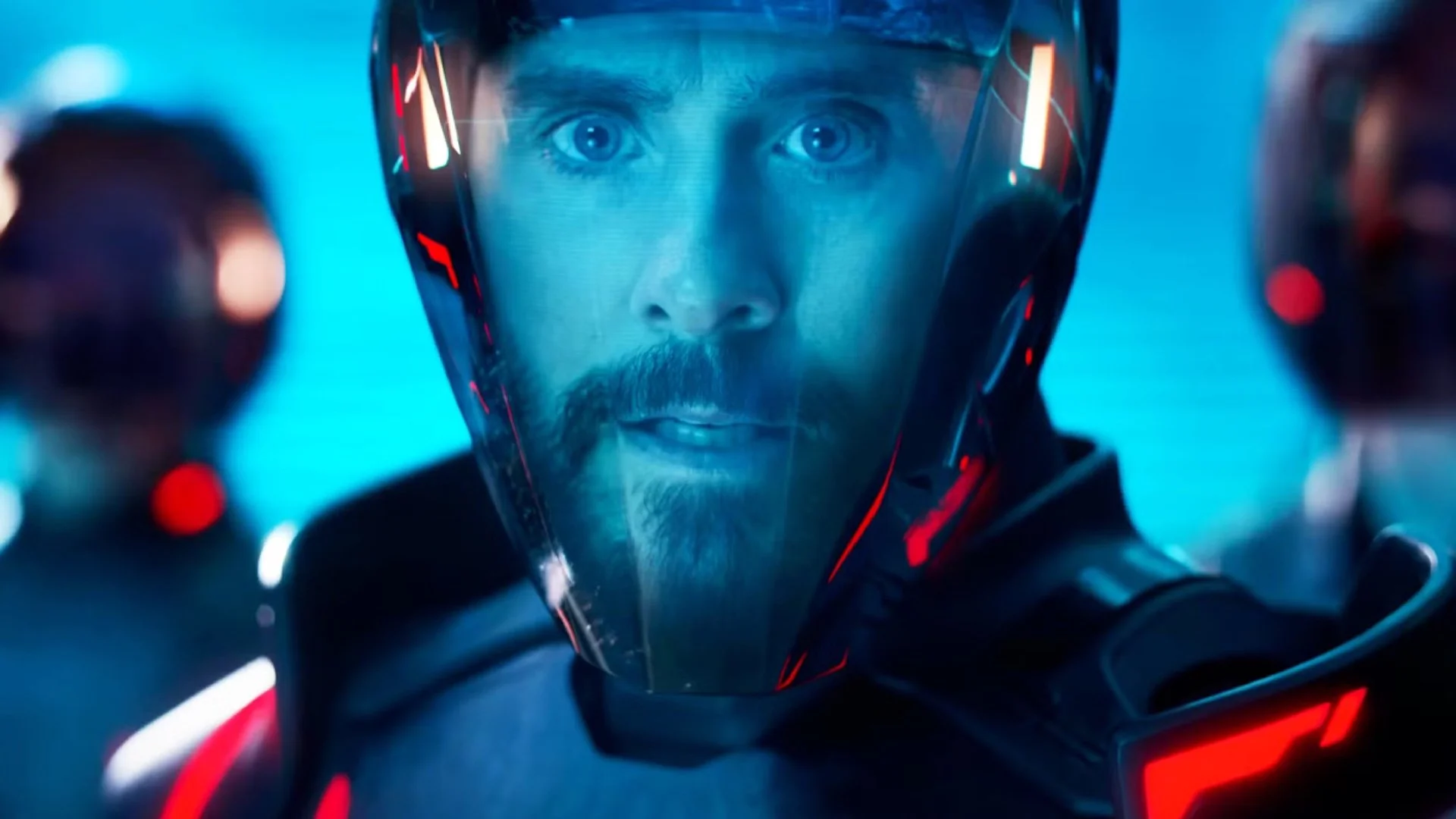TRON Producer Reveals Why It Took 15 Years to Make TRON: ARES and If TRON: LEGACY is Canon
After years of waiting, Tron: Ares is finally making its way to theaters this fall, promising to be the most ambitious entry in the Tron franchise yet.
The story follows tech mogul Julian Dillinger, played by Evan Peters, who attempts to pull digital beings out of The Grid and into the real world as a limitless army of soldiers. But one program, Ares, brought to life by Jared Leto, begins to remember who he once was and may have his own agenda to carry out.
Recently, some members of the press visited the set of Tron: Ares and spoke with producer Justin Springer, who opened up about the long road to getting a third Tron film made, why it took so long, and how it ties into Tron: Legacy.
“All the way back to Legacy, I was talking to Steven Lisberger, the creator of Tron, about what he was thinking when he came up with the idea of Tron, and he was saying, in the late ’70s and early ’80s, there was an obsession with aliens, and we kept feeling like we were close to this first encounter.
“And he was like, I always, he was living around MIT, and there was a lot of computer, new technology being developed on campus there…He said, ‘I started thinking about what if intelligent life didn’t come from outer space, but it came from inside the machine, and what if we created it, and what would that be like?’ And I thought, that’s a great concept for a movie.”
Springer described the entire Tron concept as a first contact story, just one that takes place inside a computer.
“It’s really a first encounter film, more than anything else, and it’s not in outer space. But it’s from inside this machine, and we created it, and just because we created it, does that mean we can’t control it? And if we can, should we? You know, at what point does it become sufficiently advanced that it should be outside of our control?”
That central idea has remained the foundation of every attempt to continue the franchise, including the long-stalled Tron: Ascension, which was originally in development after Legacy. While some assumed Tron: Ares was just a reworking of that abandoned sequel, Springer clarified:
“This is a new story, but in a recent interview, Joseph Kaczynski did mention… the fact that some of the DNA is in here. During the development process, was it a conscious decision to develop some of this stuff in Ascension, or was that just an organic thing that happened?
“It’s like, ‘Oh, well, now we really kind of have to cross-check here to make sure we’re not just copying everything.’”
He continued:
“There are just ideas that we’ve always liked, and I developed that with Joe, and I developed this with Joachim Rønning before, and a lot of us did. And so, really, it’s always just been about that principal idea that I heard from Lisberger in 2010.
“That was conceptually what that movie was like, what Ascension would have been about, and then we abandoned a sequel at that point, but we kept the core concept, because we felt like that was still relevant.”
So why did it take 15 years? According to Springer, the concept only became more timely as the years went by, and the technology to realize Tron on screen finally caught up with the vision.
“I mean, one thing that’s interesting is that it’s been a very long time since the development process and a long time since Legacy, but the interesting thing is that with each year that has passed, the idea that doesn’t become dated actually becomes more relevant.
“Like, right now, this concept for a movie is more in the zeitgeist than it’s ever been, and so we’ve just been chasing that idea for a long time, not to mention just technologically the ability to produce a light cycle in the real world or do some of the visual effects that we’re talking about doing. It’s we’ll be able to do a better job now than we would have 10 years ago.”
Of course, as a fan of Tron: Legacy I’ve been wondering if Ares will acknowledge that movie’s cliffhanger. The 2010 film ended with Sam Flynn (played by Garrett Hedlund) escaping The Grid alongside Quorra (Olivia Wilde), the last surviving ISO, and bringing her into the real world. That thread left fans eager to see what happened next.
Springer offered a careful answer, saying:
“We’re not telling that story right now…in deciding to move forward to a new story. But we’re not undoing that either, so it’s still out there. But this story is about, like, in terms of it, because, yeah, it’s just, it’s cleaner to tell.
“We’re basically starting in the same space where it’s a character coming to this world, and what will his experience be through this story? And so it’s not meant to undo the end of Legacy. It’s just not continuing that story.
“It’s still in the world. It still happened. We’ll just say that….It still happened. And there’s nothing we’re doing to say that it didn’t. And there’s things in the DNA that keep it alive, even in our story.”
That means Legacy is still canon, even if Ares won’t directly pick up Sam and Quorra’s story. The new film will instead push the idea of programs crossing over into our world in a different direction, one that looks like it could tie into that cliffhanger in a more subtle way.
We won’t have to wait much longer to see how it all plays out. Tron: Ares hits theaters on October 10.
